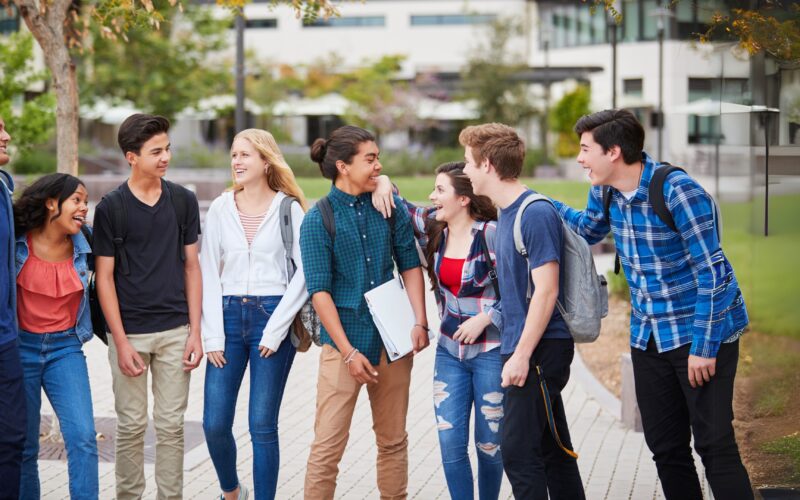High school is more than just preparing for exams or applying to college—it’s about becoming ready for life. Whether your next step is college, a career, or both, the path you take should help you grow academically, socially, and emotionally. Social-emotional learning (SEL) plays a vital role in preparing students for success beyond graduation. This guide explores how SEL connects to academic achievement, personal growth, and future career success.
What Is College and Career Readiness?
College and career readiness means having the knowledge, skills, and mindset to succeed after high school. It includes academic skills like reading, writing, and math, but also essential life skills like self-management, problem-solving, communication, and decision-making. These are often developed through SEL programs that focus on preparing students for real-world challenges.
Readiness is not a single destination—it’s a combination of planning, exploration, and growth that starts early in high school and continues throughout life.
The Role of Academic Preparation
High school provides students with valuable academic opportunities, including Advanced Placement (AP), honors courses, and dual-enrollment programs. These offerings challenge students to think critically, manage their time, and take responsibility for their learning—all essential for college-level work.
However, academic performance alone isn’t enough to ensure long-term success. Students also need strong social-emotional skills to thrive in demanding environments and make thoughtful decisions about their future.
Why Social-Emotional Learning Matters
Social-emotional learning focuses on helping students develop five key competencies:
- Self-awareness: Understanding your emotions and values.
- Self-management: Managing emotions and behaviors to reach goals.
- Social awareness: Showing empathy and respect for others.
- Relationship skills: Building healthy relationships and working in teams.
- Responsible decision-making: Making thoughtful, ethical choices.
These skills support students’ mental well-being, boost academic engagement, and lay the foundation for success in both college and career. Research from CASEL (Collaborative for Academic, Social, and Emotional Learning) shows that SEL improves students’ academic performance, classroom behavior, and stress management.
Developing SEL for Student Success
1. Building a Growth Mindset
Students who believe they can improve with effort are more likely to stay motivated through setbacks. Encouraging a growth mindset helps students embrace challenges, seek feedback, and build resilience—traits that are crucial in both academic and work environments.
2. Discovering Personal Strengths and Passions
High school is a time to explore. When students reflect on what excites or motivates them, they can make more informed decisions about college majors or career paths. SEL activities like journaling, student-led discussions, and mentoring help students discover their interests and set meaningful goals.
3. Learning to Work With Others
Group projects, extracurriculars, and part-time jobs all provide opportunities to practice communication, teamwork, and conflict resolution. Relationship-building is essential in college classrooms, job interviews, and workplace settings, where collaboration is often the key to success.
4. Making Responsible Choices
From course selections to career decisions, students are constantly making choices that shape their futures. SEL encourages reflection, ethical thinking, and long-term planning—skills that help students weigh options and make decisions they feel confident about.
Preparing for Life After High School
Understanding College Admission Requirements
Each college has its own criteria, but most look at GPA, test scores, extracurricular activities, essays, and letters of recommendation. SEL plays a behind-the-scenes role in helping students meet these requirements—building perseverance to study hard, responsibility to stay involved, and confidence to tell their story in applications.
Exploring Career Pathways
Students should explore careers early through interest inventories, internships, or job shadowing. Career readiness means more than knowing how to write a résumé—it means understanding what kind of work aligns with your skills, personality, and values. SEL helps students self-reflect and explore possibilities that match who they are.
Planning for Postsecondary Education
Whether attending a four-year university, community college, or technical program, postsecondary success depends on preparation. Students should learn how to apply for financial aid, manage time, and advocate for themselves. Emotional skills like stress management and adaptability make the transition smoother and more successful.
Supporting Students Through Schoolwide SEL
Schools play a critical role in college and career readiness by creating environments that nurture academic and emotional growth. Schoolwide SEL programs can:
- Provide emotional check-ins to track student well-being
- Train educators to model and teach SEL strategies
- Embed SEL into daily lessons and academic planning
- Foster safe, inclusive school cultures
When SEL is a core part of school culture, students feel more connected and supported—leading to higher motivation, lower dropout rates, and stronger preparation for life after high school.
Final Thoughts
College and career readiness is about more than grades and test scores. It’s about preparing the whole student—academically, socially, and emotionally—for the challenges and opportunities ahead.
Through social-emotional learning, students develop the skills they need not just to succeed in school, but to lead meaningful, confident, and fulfilling lives. When schools prioritize SEL, they equip students to make thoughtful decisions, build strong relationships, and navigate whatever comes next.
Whether you’re a student, educator, or parent, understanding the power of SEL can help you support the next generation of college- and career-ready learners.


